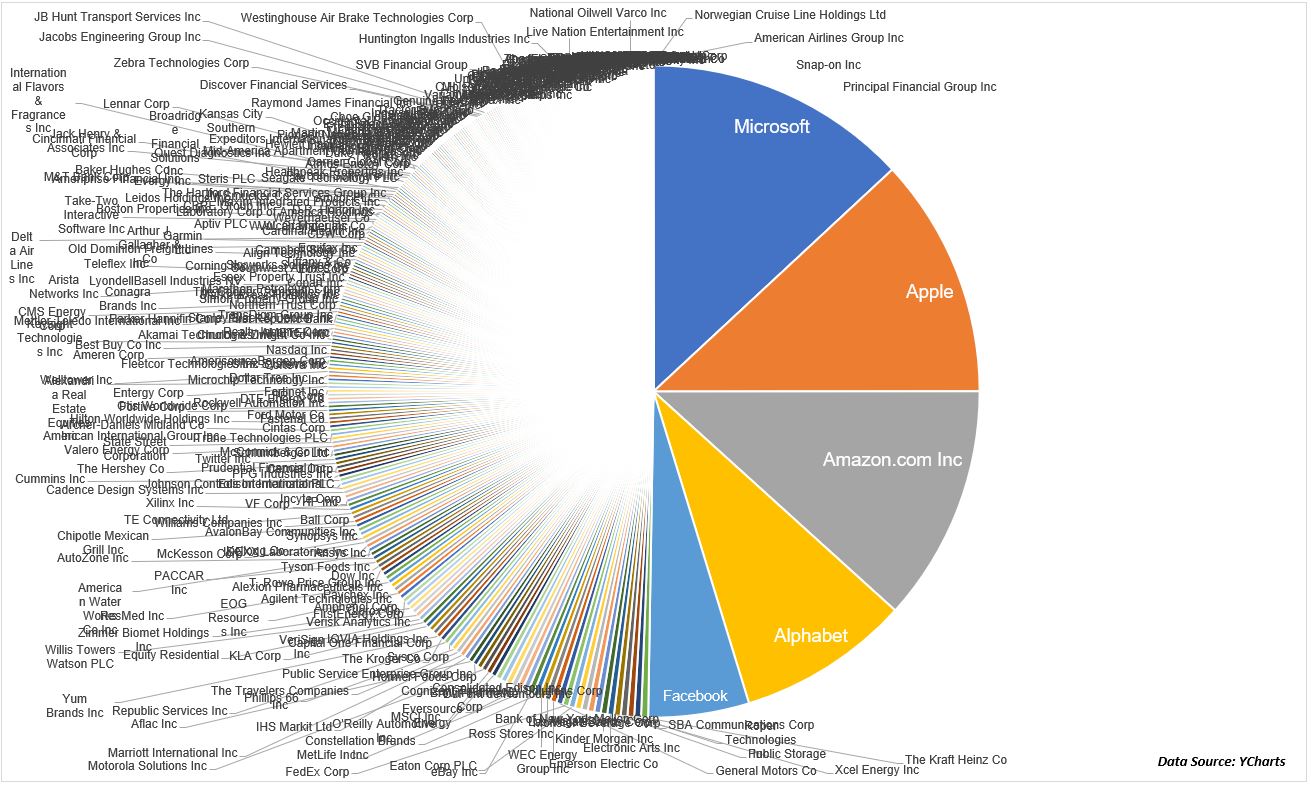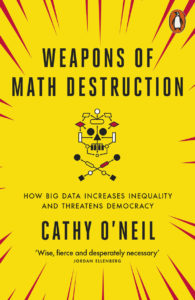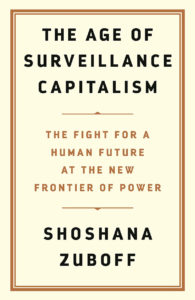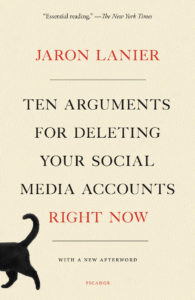Apple
Facebook vs. Apple vs. Google vs. U.S. Gov: War of Giants is at Hand
Published
4 years agoon

Above: Photo ubisoft / Lynxotic
The battle is getting very public and will get louder and nastier
The full page newspaper ads taken out by Facebook, where they proclaim themselves the champion of small business and attack Apple directly are interesting and curious on many levels.
It will take a series of articles to attempt to untangle the confusions and endless, often intentionally fostered, misconceptions that will most certainly arise in this battle of titans.
At the heart of the matter is, however, the largest misconception humanly possible, the idea that these monstrously huge companies, and how they operate, are anything at all related to “normal”.
The fact that all of us have seen the role of the internet in general increase over the last 20+ years, and have therefore had to deal with, and in some cases, go through and cooperate with these behemoths, may be the status quo that has developed, particularly in the last decade, but it is without precedent on many levels.
The size, power and influence is beyond comprehension and this clouds every issue
Before even beginning to contrast one giant against another one must first confront the very existence of entities of this magnitude. It’s fair to say that never in history has such a tiny group of companies, and by extension, individual humans, controlled so much of the economy and so much of that impacts the society and our experiences.
This chart is not current. If it were the disparity would be far larger and even more astounding:

This information, for a human, is so out of whack that you would have to stare at this chart for days before it could even sink in. And, as it it only a chart of size, built on company market capitalization, the power and influence, which represents and ever larger disparity, is not represented.
The dominance overall is so extreme as to be humanly incomprehensible. And by all measures the disparity between the big tech firms and “everybody else” grows literally by the second.
If you are afraid of A.I., you’re too late, the world is already controlled by computers and software via these companies
Facebook is probably the best example to illustrate the problem of market power and dominance on a level that is so far beyond traditional methods of measurement that even government antitrust investigations are barely able to begin to access the potential violations.
“The questions below might seem odd, or even absurd. But what is really absurd is that they are, for the most part, never asked. “
— D.L.

Also Available on Amazon.
The questions below might seem odd, or even absurd. But what is really absurd is that they are, for the most part, never asked. Since the iPhone and later Samsung / Android revolutionized information and photo sharing, it has been accepted as a simple reality that Facebook controls nearly all the “social networking” that is done with that data. Why?
What is Facebook? Most would say they are a “social media company” but that can mean anything you want it to mean. They claim they are in the business of “connecting people” yet they derive massive wealth and profit from advertising, and “monetizing” their network, the largest network of “social users”, by far.
And if they are interested in connecting people, then what do those people own of the network that they themselves comprise? That would be nothing.
What say do they have in how they are used to “monetize” the network that they literally “are”? None.
What trust do they have to surrender to the company, which includes Facebook, Instagram, WhatsApp and more (all controlled 100% by a guy named Zuckerberg)? 100%
“What ‘say’ do they have in how they are used to “monetize” the network that they literally ‘are’? None.”
— D.L.
Who authorized Facebook (or Google) to amass vast databanks of private personal information from a huge chunk of the world’s population, and use that data to amass fortunes of unheard of size using secret proprietary algorithms that they have zero requirement to disclose? Well, technically, users, inadvertently and without understanding, did. Otherwise: No-one.

and help Independent Bookstores.
Also Available on Amazon.
Well, technically all of this was “allowed” via Section 230 of the Communications Decency Act, passed in 1996, and states that an “interactive computer service” can’t be treated as the publisher or speaker of third-party content. This, effectively, protects websites and “platforms” such as Facebook, from lawsuits in the case that a “user” posts something illegal. There are exceptions, for example, for copyright violations, sex work-related material, and violations of federal criminal law.
This fact does not remove responsibility for building a system that gives massive financial benefit to Facebook, Google, etc and very little, in reality, by way of return or influence to the “user”.
It’s as if a man figured out a way to use mental-telepathy to rob banks and could never be caught or prosecuted due to the fact that no one had ever robbed a bank that way before. And then he claimed that he should be allowed to continue doing it forever, with impunity.

and help Independent Bookstores.
Also Available on Amazon.
What would Facebook and Zuckerberg have if the billions of “users” stopped using its network? Nothing.
How little sense this makes just goes on and on. There could be 100s of pages of similar questions and answers and the end result would be a slightly better understanding of the absurdity of the very existence of such a “service” or company or whatever this is.
Why absurd? In a nutshell, Facebook controls private networks that exist “inside” a more public network called, for lack of a better term, “the internet”. And, because of what could be termed a mistake of history they represent a dominant, near monopoly, in the “space” which in this case is currently called “social networks”.
The dominance and the definition of monopoly can be argued endlessly (and likely will be in the coming antitrust cases) but, in the end, the numbers don’t lie. Only one person benefits, in direct payments of trillions of dollars, from a near monopoly in social networks. The billions of people, the very people who are the network, do not.
A bleak analysis, perhaps, but is there any light at the end of this tunnel?
The current increase in antitrust cases, both in the US and Europe, is a canary-in the-coal-mine moment and the wars over all the arising issues has begun and will go on for years.
The fact that Facebook is heavily advertising that they are the “good guy” while Amazon and Google do the same, is both ridiculous and sad, since “good guys” don’t have to buy ads to draw attention to that fact.

“Ten Argument for Deleting Your Social Media Accounts“
and help Independent Bookstores.
Also Available on Amazon.
And the fact that these companies have already started, both in word and deed, to attack each other directly, is an indication of just how serious and all pervasive these mega-wars will be. This is just the beginning.
Read more: How Apple Created the Tech Universe and it Finally Makes Sense
While none of the companies depicted on the chart above can be said to be without blame for the world of injustice and malfunction that is the internet, and by extension, our world, there is one company that stands apart from the others in so many ways and for so many reasons that they, amazingly, represent some hope within the madness.
And, not coincidently, they are the one that is already being attacked, in print and software, as the wars begin: Apple.
How Apple actually represents hope to clean up the tech universe that, arguably, they are most responsible for having created, is likely a hard sell with those that want to lump all these huge companies together. Because, after all, they are all huge.
However, nothing could be further from the truth. More on this and other burning questions in our next episode, so stay tuned.
Subscribe to our newsletter for all the latest updates directly to your inBox.
Find books on Music, Movies & Entertainment and many other topics at our sister site: Cherrybooks on Bookshop.org
Enjoy Lynxotic at Apple News on your iPhone, iPad or Mac.
Lynxotic may receive a small commission based on any purchases made by following links from this page.



